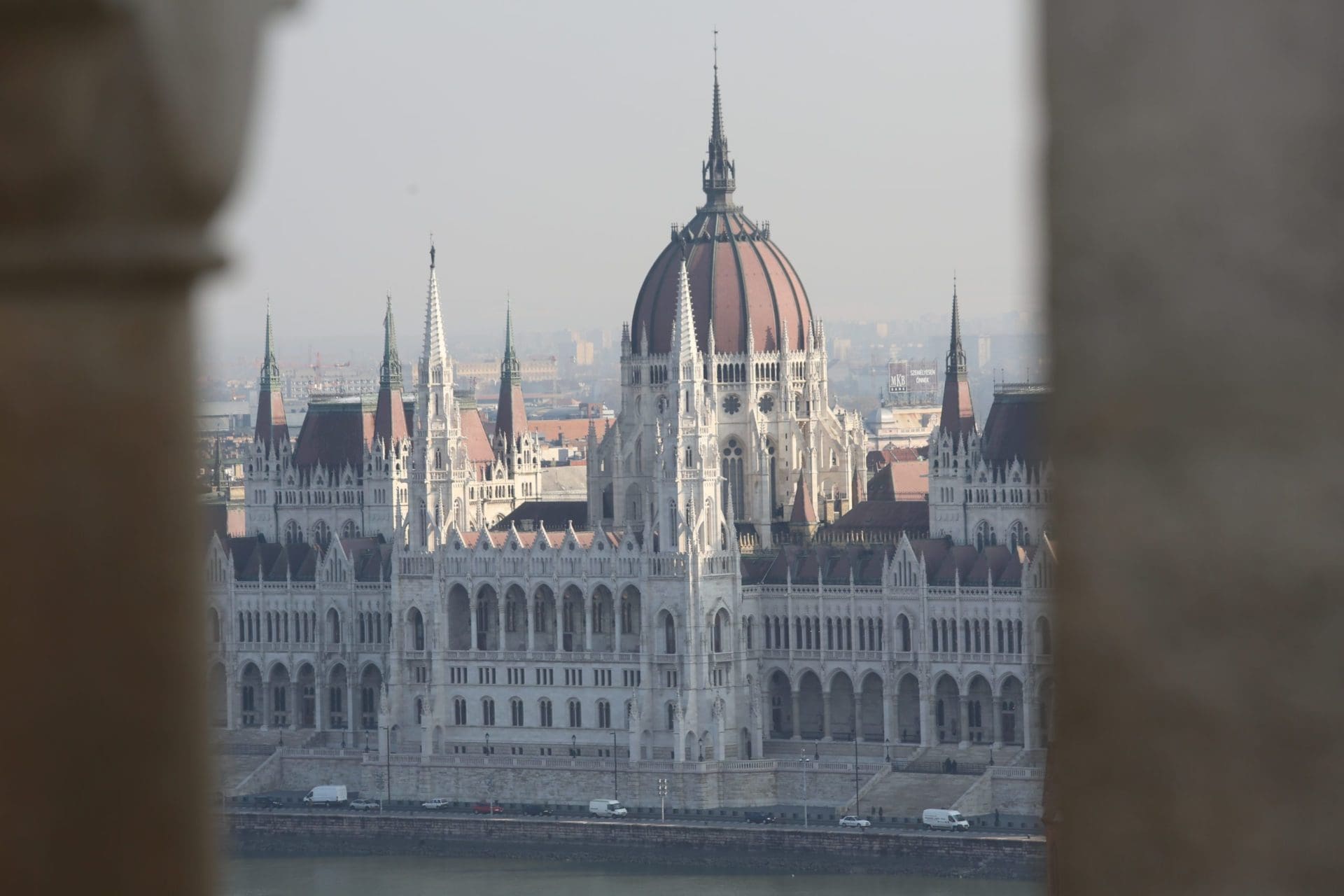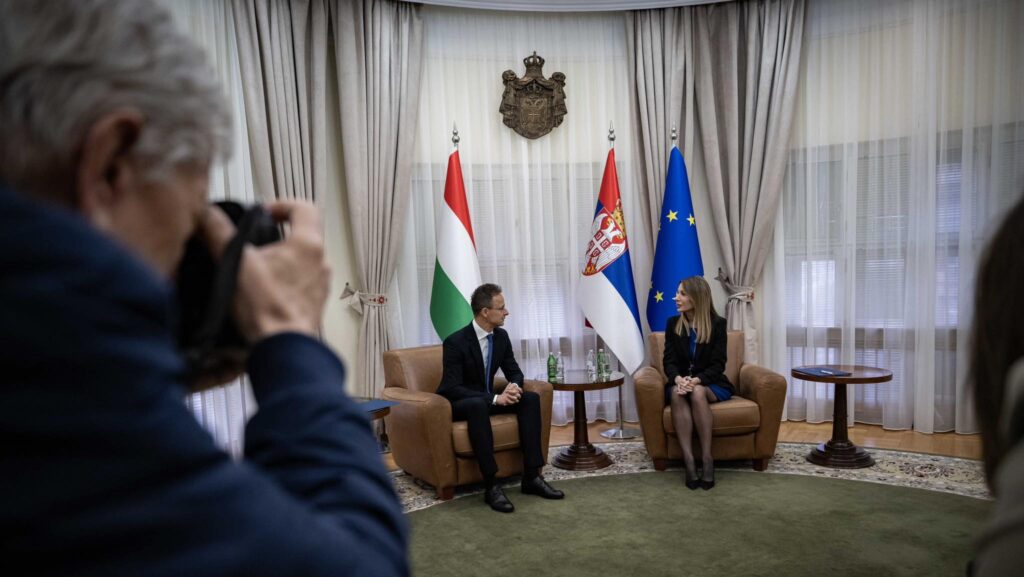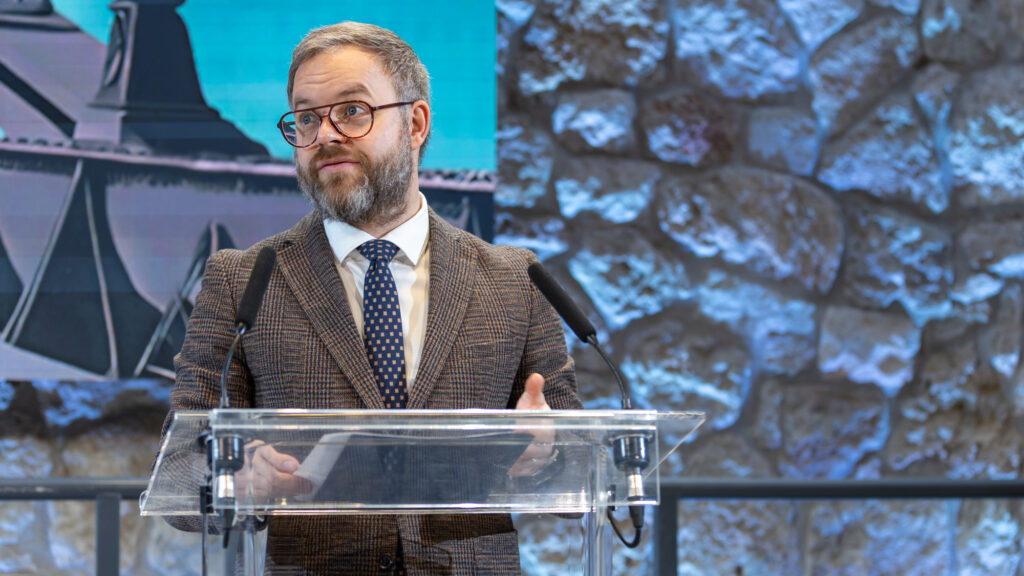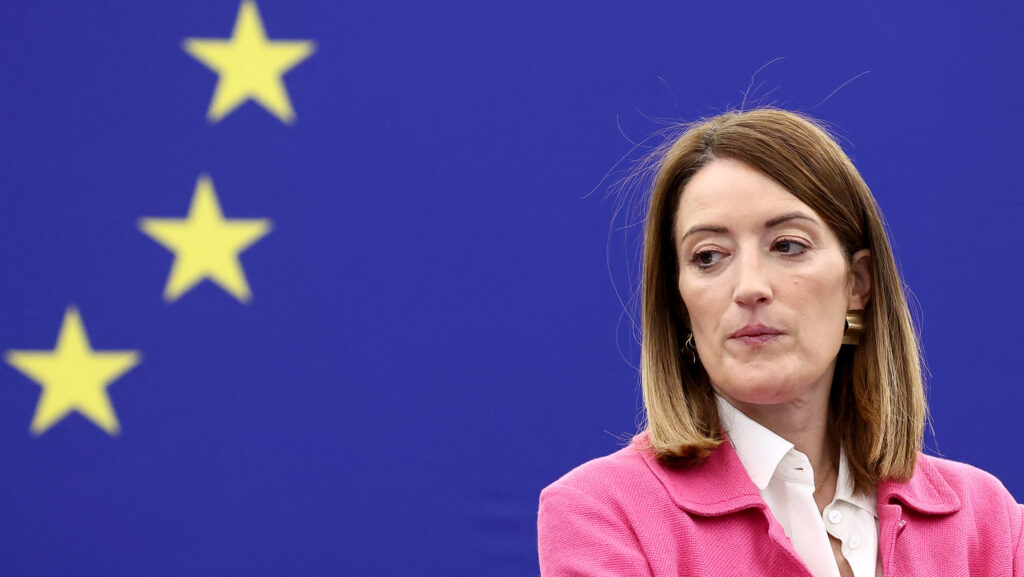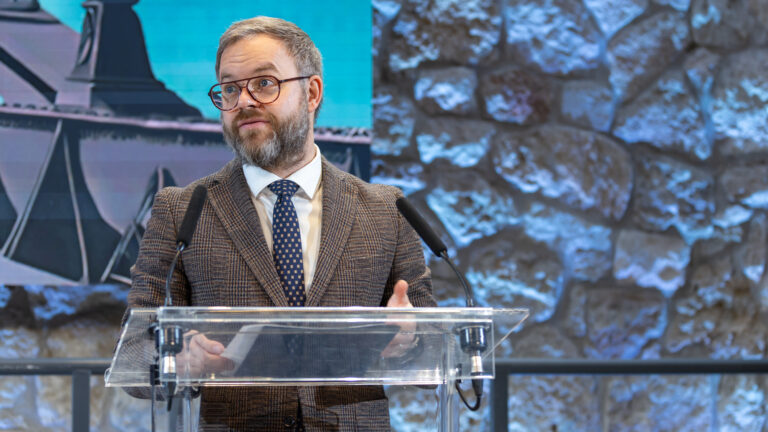On 3 April, Hungarians will go to the polls to decide the fate of their government between long-time incumbent Prime Minister Viktor Orbán and his Fidesz Party, and Péter Márki-Zay and his United for Hungary. Far be it for me as an American who lives in Italy to tell Hungarians how to vote. Yet their decision in next month’s parliamentary elections to ensure Orbán another term is of vital importance not just for their economic and social stability, but for the rest of Europe, too.
For most Americans and Western Europeans, Orbán has been portrayed, specifically by the left-wing mainstream media, some European Union members, and Márki-Zay, as a selfish despot who has taken his country back into the Dark Ages. The opposition candidate went so far as to accuse[1] the Prime Minister of being ‘a mercenary and servant’ of Russian President Vladimir Putin, saying Orbán shared the blame for the situation in Ukraine.
It should be of no surprise then that Orbán’s adversaries are doing their best to secure the victory of Márki-Zay—who, despite identifying himself as a devout Catholic, promotes same-sex “marriages” and abortion—by discrediting Orbán.
For example, in a recent New York Times article titled ‘Dispatch From Hungary: The Man Trying to Return His Country to the Free World,’[2] opinion columnist Michelle Goldberg vehemently criticised Orbán for “favouring” Putin’s invasion of the Ukraine. The reason given was that he ‘did not join the prime ministers of Poland, the Czech Republic, and Slovenia when they travelled to Kyiv to show solidarity’ with the Ukrainian people.
Orbán has also been condemned by many for not taking part of the sanctions imposed by US-led NATO, notwithstanding his publicly condemning Putin’s invasion of Ukraine, not vetoing EU sanctions against the Russian Federation, and taking in a record number of Ukrainians seeking asylum in Hungary. Such acts, among others, are not those of a narcissistic politician, let alone of a pro-Putin autocrat. Rather, they demonstrate political insight and efficient decision-making.
Orbán’s Pragmatism with Russia
The goal is to ensure that Hungary not just remains united with Europe, but sustains Hungarian integrity
Orbán’s pragmatic approach is reflected in his response to the war between Russia and Ukraine. The goal is to ensure that Hungary not just remains united with Europe, but sustains Hungarian integrity. Orbán is aware that if he were to join in on sweeping energy sanctions or provide weapons to the Ukrainian troops—which would not alter Putin’s aggression—Hungarians would eventually be forced to buy gas from Russia anyway, but at higher prices. Not to mention the fact that he would also unnecessarily place Hungarian soldiers in harm’s way, as well as potentially provoke Russian aggression against those Hungarians who live in Transcarpathia (Western Ukraine).
At times like these, said the Hungarian Prime Minister:
‘[We] cannot allow for campaign interests to take over. The opposition wants to send weapons and soldiers to shoot at and fight against the Russians. This proves they have no routine, no knowledge and no sense of responsibility. We need responsible politics, security and stability, rather than adventurers.’[3]
Russia, Orbán argues, is concerned with its own nationalist interests, which, as the PM noted, includes rearranging the European security map, and neither the US nor the EU comprehend how Central Europe has become a chessboard for the Western superpowers.
Orbán’s Acumen with China
A concern of Orbán supporters, myself included, has been his close ties with Communist China. Through his “Opening to the East” policy, Hungary became the first European country to join China’s Belt and Road Initiative in 2015. Orbán also called for a referendum[4] on whether China should build a branch of its Fudan University in Budapest. Common perception would suggest that the Prime Minister is taking too high of a risk when inviting Communist China’s flagship university into the country and that this move would ultimately undermine Hungary’s sovereignty and international credibility. Yet because China, as Orbán stated, was likely to become the strongest economic and military power in the near future, Hungary with its population of 10 million must manoeuvre cleverly. The global economy is developing in ways never foreseen. Therefore, there is a need to help the Hungarian youth stand their ground not only in the Western, but also in the Eastern economies of the “new economic order.” As the PM explained: ‘[W]e are in an alliance with the West but would also like to develop beneficial relations with the rising great power.’
His government is ‘not afraid of the communists’
At the same time, Orbán noted, his government is ‘not afraid of the communists.’ ‘We already beat them once, so we have no problem with this, we know exactly what we need to do and how. Therefore, we consider our economic cooperation affiliated with them and the preparations and training aimed at that cooperation to be especially important.’
His economic rapport with the Chinese Communists should not be seen as a compromise. Many may not know that a young Orbán in 1989, on the occasion of the reburial of Imre Nagy, the reform communist prime minister who was tried and executed in 1958, denounced the Communists while they were still in power.
Orbán’s Pro-Family Policy
Orbán, in line with the Christian principles he promised to uphold, has remained steadfast in his pro-family policies. The government has prohibited the ‘promotion’ of sexuality among young people under a new law,[5]and has outlawed promoting sex change among minors, including in schools, films or books—this led EU President Ursula von der Leyen to condemn such policies as ‘a shame.’[6]
As reflected in the country’s Basic Law of 2011,
- Hungary protects the institution of marriage between man and woman, as a matrimonial relationship voluntarily established, ‘as well as the family as the basis for the survival of the nation.’ (Article L of the Foundation section.)
- Hungary supports child-bearing. In the Freedom and Responsibility section, Article II states: ‘Human dignity is inviolable. Everyone has the right to life and human dignity; the life of a foetus will be protected from conception.’
- In the same section, the Basic Law states that eugenic practices aimed at selection of persons, making the human body and its parts a source of profit, and the reproductive cloning of human beings are prohibited.
In view of the demographic decline[7] in Hungary—something all Western European nations are facing because of their effective altruism and their advocacy of the LGTBQ policies—in 2019 Orbán unveiled a seven-point plan to help the formation of marriages and families.
In what was proclaimed as the Family Protection Plan,[8] the Hungarian body politic implemented norms in which
• every woman under 40 years of age would be eligible for a preferential loan when they first get married;
• preferential loans for the family home purchase scheme were extended; families raising two or more children would now also be able to use it for purchasing resale homes;
• families with two or more children would be repaid 1 million forints (approximately € 2.600) of the mortgage loan;
• women who have had and raised at least four children were to be exempt from personal income tax payment for the rest of their lives;
• grandparents would also be eligible to receive child-care fees and look after young children instead of the parents.
As mentioned at the beginning of this article, not being of Hungarian citizenship, I cannot speak for Hungarians when they go to the polls on 3 April. But they can certainly speak for us Westerners who are looking for some sort of socio-political stability should they choose Viktor Orbán over Péter Márki-Zay.
[1] Daily News, PM Candidate Márki-Zay: ‘PM Orbán a mercenary and servant of Putin,’ Dailynewshungary.com (1 March 2022), PM candidate Márki-Zay: PM Orbán a mercenary and servant of Putin – Daily News Hungary, accessed 22 March 2022.
[2] Michelle Goldberg, ‘Dispatch From Hungary: The Man Trying to Return His Country to the Free World,’ Nytimes.com (18 March 2022), Opinion | Dispatch From Hungary: Can This Man Oust Viktor Orban? – The New York Times (nytimes.com), accessed 20 March 2022.
[3] Daily News, ‘Here are PM Orbán’s thoughts about Putin, Russia and the war in Ukraine,’ Dailynewshungary.com (3 March 2022), Here are PM Orbán’s thoughts about Putin, Russia and the war in Ukraine – Daily News Hungary, accessed 20 March 2022.
[4] Reuters, ‘Hungary PM Orban Confirms Referendum on China University After Protest,’ USNews.com (10 June 2021), Hungary PM Orban Confirms Referendum on China University After Protest | World News | US News, accessed 23 March 2022.
[5] Euronews, ‘Hungary proposes banning the promotion of homosexuality to children’ (11 June 2021), Hungary proposes banning the ‘promotion’ of homosexuality to children | Euronews, accessed 25 March 2022.
[6] Euronews, ‘Hungary anti-LGBT law is a ‘shame’ says Ursula von der Leyen’ (11 June 2021), Hungary’s anti-LGBT law is a ‘shame’ says Ursula von der Leyen | Euronews, accessed 25 March 2022.
[7] Worldometer, Hungary Population, Worldometers.info, Hungary Population (2022) – Worldometer (worldometers.info), accessed 25 March 2022.
[8] Hungary Journal, ‘Orban announces major family protection package’ (10 February 2019), Orban announces major family protection package – Hungary Journal (thehungaryjournal.com), accessed 24 March 2022.

